Noun identification Worksheets for Ages 3-5
5 filtered results
-
From - To
Explore our engaging Noun Identification Worksheets designed specifically for children ages 3-5. These fun, colorful activities help young learners recognize and understand nouns in an interactive way. Each worksheet features captivating images and simple prompts that encourage kids to identify common nouns in everyday contexts. Perfect for home or classroom use, our materials support early literacy skills, boost vocabulary development, and foster a love for learning through play. With a mix of tracing, coloring, and matching exercises, our worksheets cater to various learning styles, making noun identification an enjoyable experience for your little ones. Start building their linguistic foundation today!
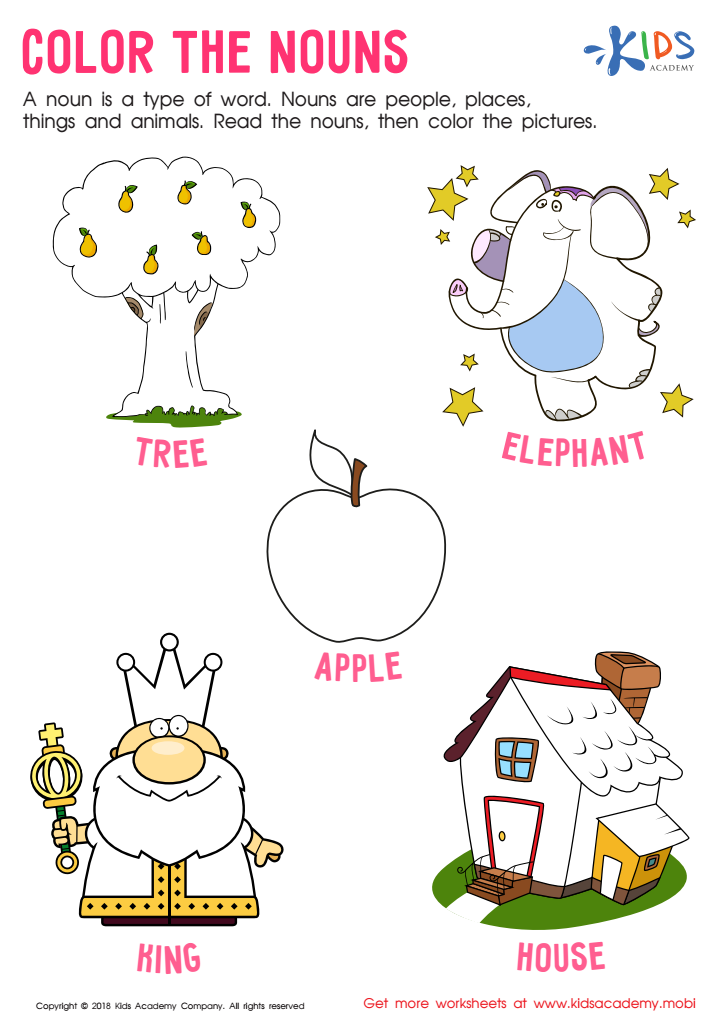

Color the Nouns Worksheet
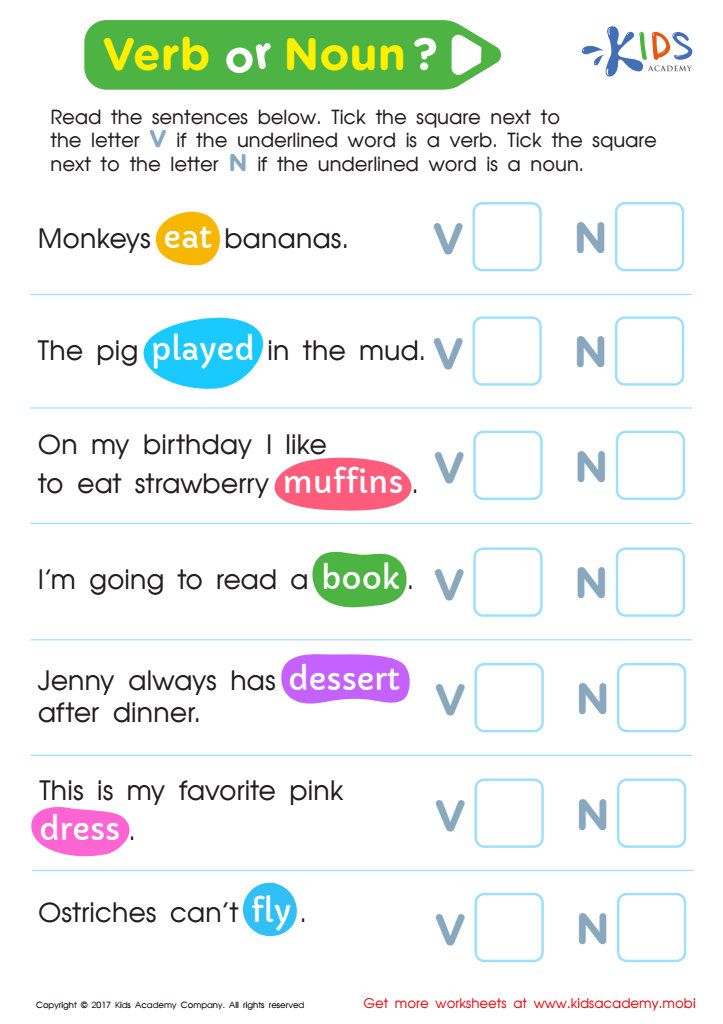

Verb or Noun Worksheet
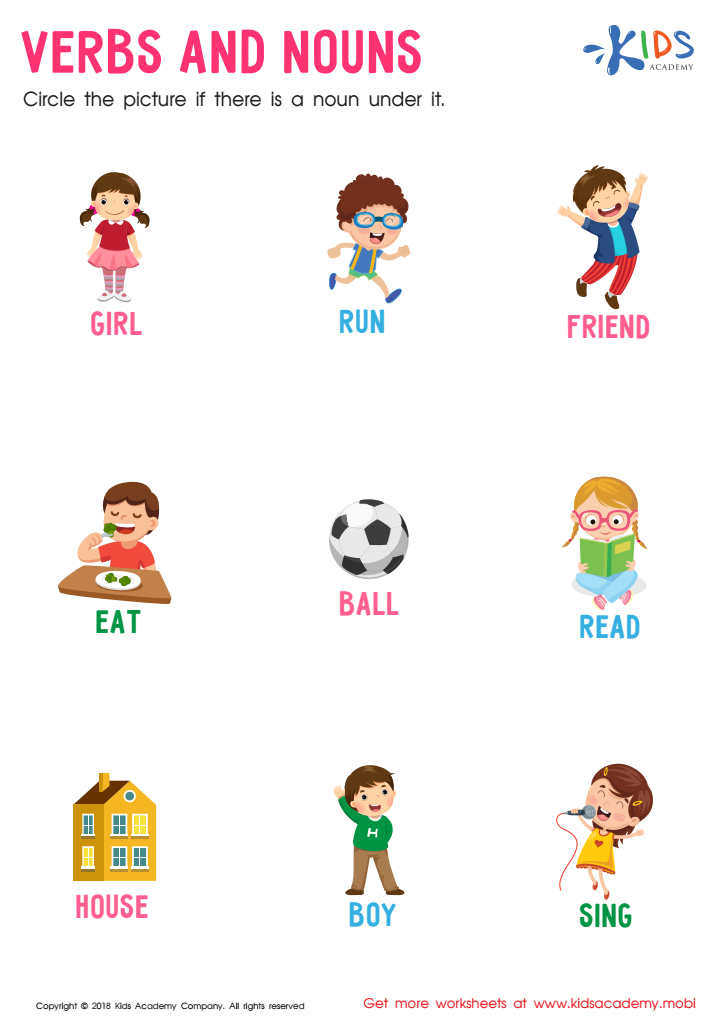

Verbs and Nouns Worksheet
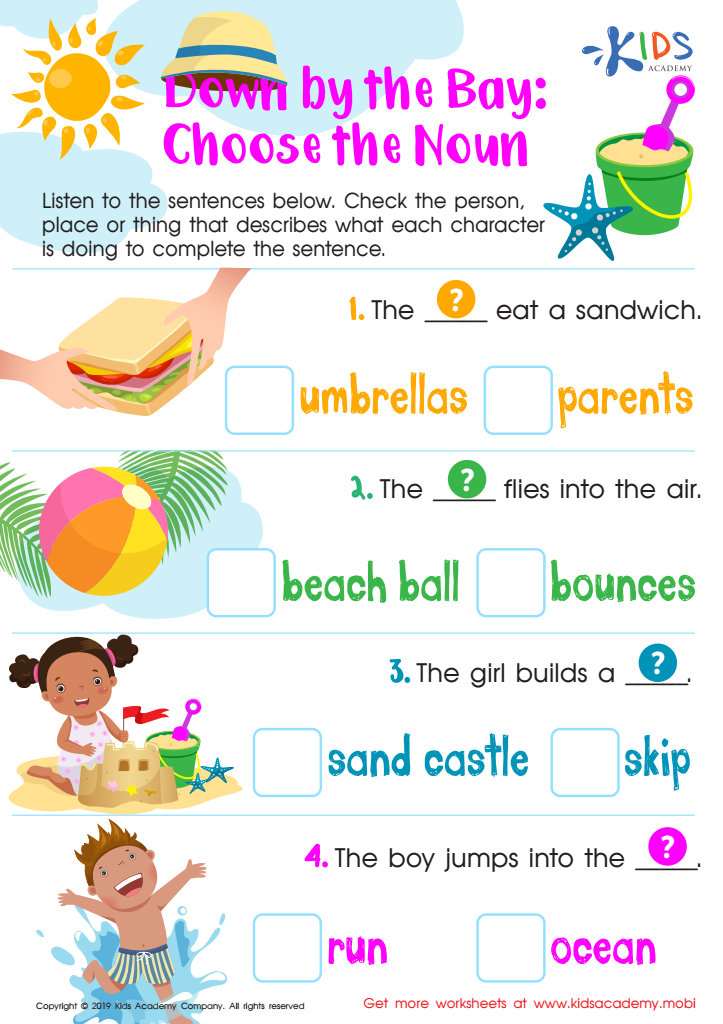

Down by the Bay: Choose the Noun Worksheet
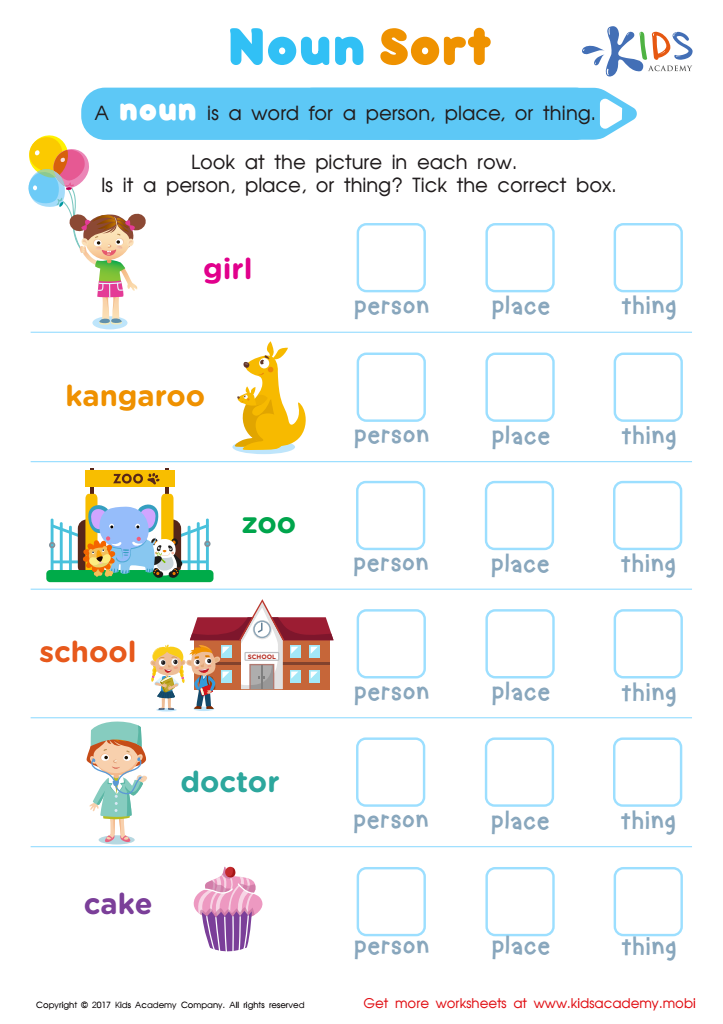

Noun Sort Printable
Noun identification is a fundamental skill for children aged 3-5, serving as a cornerstone for language development and communication. At this stage, children are rapidly expanding their vocabulary and understanding of language, and recognizing nouns helps them categorize the world around them. Parents and teachers should care about enhancing noun identification for several reasons:
Firstly, it fosters expressive language skills. By learning to identify and name objects, people, and places, children can better convey their thoughts and feelings, contributing to their ability to engage in conversations.
Secondly, it supports reading readiness. Nouns are often key components of stories, and recognizing them helps children comprehend text, making reading an enjoyable and meaningful experience.
Moreover, noun identification encourages cognitive development. Children connect words with their meanings, enhancing their memory, attention, and critical thinking skills.
Additionally, this skill promotes social interaction. As children learn to name items, they become more confident in initiating communication with peers and adults, fostering social relationships.
In summary, focusing on noun identification for young children lays the groundwork for effective communication, literacy skills, cognitive growth, and social interaction, ultimately preparing them for future academic success and meaningful interactions in their daily lives.

 Assign to My Students
Assign to My Students

















